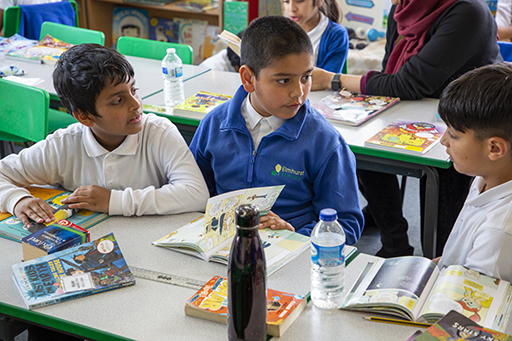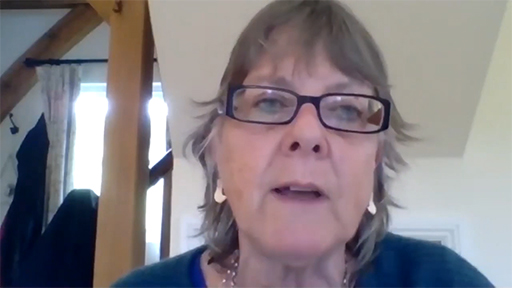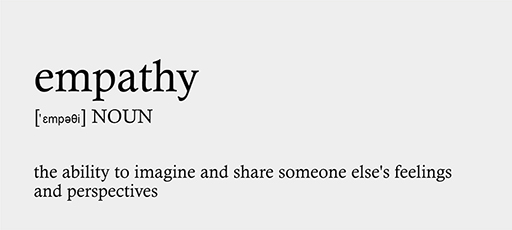7 Empathy
Empathy can be defined as the ability to imagine and share someone else’s feeling and perspectives (Figure 4). The simplicity of this definition, however, does not reflect the significance of empathy to humanity.
Empathy is both cognitive and affective. It enables you to comprehend another person’s perspectives, or their way of seeing a situation. Through your capacity for empathy, you also experience feelings and sensations as a response to someone else’s emotions or life circumstances, whether it be their pain, their joy or any other feeling.
In Sessions 1 and 2, you considered how reading can be thought of as an ‘affective’ process that can conjure sensations, feelings and emotions and you read the poem entitled My Name by poet, Coral Rumble (Session 1, Section 8). You might recall how you felt after reading the poem and whether it evoked a potent affective response.
For the individual child, developing empathy is integral to their social and emotional development, and their ability to connect with others and build relationships. It is empathy that underpins altruistic kindness, compassion and acceptance. Empathy helps you connect with others, build relationships and establish rapport.

For society, empathy is the glue that holds communities together. Empathy connects people and breaks down barriers to action, progress and creativity, it reduces confrontation, and leads to a fairer, more just society. Empathy is good for the home, school or workplace environment; it’s good for road safety; as a medium for social action, empathy is good for society, for the environment and for the planet. Yet how well does western society foster children’s empathy?
As Barack Obama noted in one of his speeches,
The biggest deficit that we have in our society and in the world right now is an empathy deficit. We are in great need of people being able to stand in somebody else’s shoes and see the world through their eyes.
Empathy can be nurtured at any point in life and children’s books are powerful tools through which to foster it. Through reading, children get to know characters they might never otherwise meet. They gain insight into others’ ways of life and they get to think, feel and view the world from another person’s perspective. The close connection children develop with characters in literary text promotes sensitivity in their interactions with people in their daily lives.

Optional resource
The UK organisation Empathy Lab founded in 2014 is dedicated to building children’s empathy, literacy and social activism through literature. This is the organisation behind the annual national Empathy Day, which produces ‘Read for Empathy’ collections [Tip: hold Ctrl and click a link to open it in a new tab. (Hide tip)] .
In this recorded webinar, Miranda McKearney, founder of Empathy Lab discusses the importance of raising an empathy educated generation.

Transcript: Video 2
Children develop deeper understanding through narrative texts, and such texts are powerful tools for cognitive, social and emotional development. In the following section, you will explore how narrative texts are also vehicles to develop children’s sense of agency.

